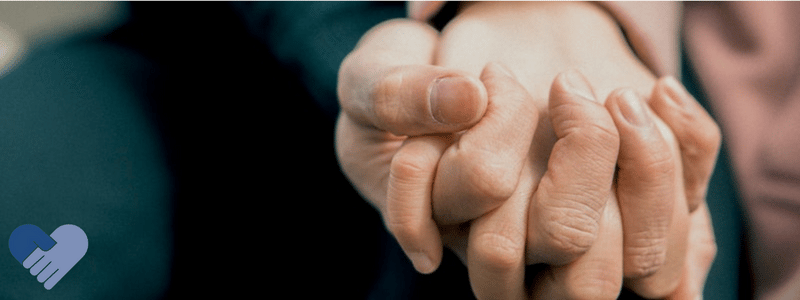Search by category, archive or keyword

Most people are great at providing advice when the guidance does not involve their children. For parents whose son or daughter is struggling with addiction, the suggestions are often hard to hear and even more difficult to follow.
The methods for holding an addict or alcoholic accountable go against just about every parental instinct. It is almost an instinctive reaction to enable your child whether they have an addiction problem or not.
The difference appears to be when your enabling was helping or protecting your child versus now when your enabling is causing them harm. There was a time when saying no was in their best interest. You have to ask yourself, “why is it so hard to say no now?”
Signs of Enabling an Alcoholic
There are always the obvious enabling behaviors that we know we should not be doing. These include giving money to support a habit, placating or excusing poor behavior, and using alcohol or drugs with someone who is addicted. Beyond these, there are less obvious and equally destructive enabling behaviors that parents often engage in with their children. These include:
- Acting out of Fear: Many family members believe their enabling is keeping their child alive. It is often thought that if they did not provide comfort, then their loved one would become worse or even die. This fear comes from two places. First, the addict or alcoholic makes the family believe this over time. The second comes from families coming to believe they are now the substance user’s caretaker and have a purpose in tending to their needs. The family believes their son or daughter has become incapable of taking care of themselves.
- Enabling Through Guilt and Shame: Guilt is the feeling you did something wrong, and shame is the feeling that you’re a bad person or parent. Addicts and alcoholics have a 6th sense when it comes to preying on one’s emotions and vulnerabilities. Although nobody has the power to make you feel a certain way, verbal assaults from the substance user can make a parent feel as though they have failed. It is very common for parents of addicts and alcoholics to believe their only recourse is to enable and make their loved one feel better. Using past wrongs done by family to the substance user and telling their parents they are this way because of them become commonplace weapons.
Families may also protect the image of the substance user to avoid the shame of others knowing their son or daughter has a drug or alcohol problem. If others find out, what will they think of our family?
Trust us when we tell you this, everyone already knows, and you’re not hiding anything by enabling in an attempt to hide the guilt and shame of your family problems.
- Playing the Victim Card: Two can play this game. The addict or alcoholic plays the victim card to gain sympathy and empathy. Family does the same thing, it’s called being a martyr. What is interesting is both the victim substance user and the martyr family member scream for help, and when help is offered, they both decline it. It is as if they are both equally addicted to being victims as they are being substance users and martyr codependents. Everyone has problems, and just about every problem has a solution. This solution often includes remaining a victim for a substance user and a martyr. This allows justification to continue the behaviors.
- Hoping and not Acting: With addicted family members, hope is often an illusion. It becomes a psychological justification to make one temporarily feel better. Hope is a good thing once or twice. Nothing changes when you continue to use hope as a coping mechanism to pretend things will get better while exercising the option of inaction.

Hope is relying on someone to change or for something else to happen. Families of addicts and alcoholics are allowed to take action and change their behaviors by starting their own recovery program. This can encourage or expedite something else to happen with the addict or alcoholic.
When you look at every form of enabling, you’ll realize it is never about comforting the substance user. It is always about comforting the enabler. It is our professional opinion that codependency and enabling should be classified as a process addiction.
A process addiction, in layman’s terms, is an addiction that is behavioral in nature. Like a substance use disorder, a process addiction is when someone continues a behavior in spite of the continued negative consequences it has on themselves and others.
Consequences of Enabling
For every action, there is a reaction. For enablers, the reaction can be viewed as the law of unintended consequences.
Before looking at the consequences, it would be helpful to understand the following:
In order for a substance user to move through the stages of change, we must seek to remove any system or thing that allows a substance user to avoid uncomfortable feelings and situations; to provide a recovery plan that holds them accountable and responsible and helps them face uncomfortable life situations in a healthy manner on their own.
Notice that no mention of drugs or alcohol is made in the statement above. That is odd, you may say. Why would that be? Isn’t intervention and addiction recovery really about drugs and alcohol?
It is helpful to remember that the substance user’s drug and alcohol use is but a symptom of an underlying problem. The underlying problem is overcoming the substance user’s avoidance of uncomfortable feelings, things, and situations.
The solution is allowing the substance user to face uncomfortable life situations and feelings without avoiding them by using drugs, alcohol, or other means. The danger lies in doing an intervention or approaching the problem with the misconception that it is all about substance abuse. The problem is, and always has been, about the user avoiding uncomfortable feelings, things, and situations.
It would be safe to say the consequence of enabling is that it disables the substance user’s ability to address the real problem. Furthermore, it allows the substance to be fed one of their underlying motivations of avoiding discomfort.
Families are repeatedly told what the consequences of enabling are doing for the substance user. It would be very therapeutic for the enabler to look at the consequences to themselves if they were to stop enabling. This can help them understand that the enabling was for them and not the substance user.
An addict or alcoholic very rarely has the resources or ability to continue substance abuse without help from an outside source, individual, or group.
Does Your Loved One Have a Problem With Alcohol or Drugs? We can help.
At Family First Intervention, we look beyond the obvious and common enabling behaviors. We are not interested in telling you what you already know and why you should stop. Through our S.A.F.E.® (Self Awareness and Family Education) intervention process, we seek to help you understand the why.
Most intervention companies send out people in recovery who seek to state the obvious and then talk your loved one into treatment. They often suggest not to enable your loved one anymore because they will never quit; that is obvious. We must dig deeper to help the family understand why they were enabling and what comfort it was bringing them in doing it.

Anyone can sit you down and tell you what you’re doing wrong. A real professional helps you understand why you’re doing things the way you are and helps you see the upside and downside of changing or not changing your behavioral patterns.
We have to get away from believing interventions and change come from simply talking your loved one into a treatment center. The real change happens when the substance user recognizes why they used substances and when the family understands why they enabled them to do nothing about it.
If you or a loved one is in need of treatment for recovery, please reach out to us today.
An intervention is not about how to control the substance user; it is about how to let go of believing you can.
“The most formidable challenge we professionals face is families not accepting our suggested solutions. Rather, they only hear us challenging theirs. Interventions are as much about families letting go of old ideas as they are about being open to new ones. Before a family can do something about the problem, they must stop allowing the problem to persist. These same thoughts and principles apply to your loved one in need of help.”
Mike Loverde, MHS, CIP




